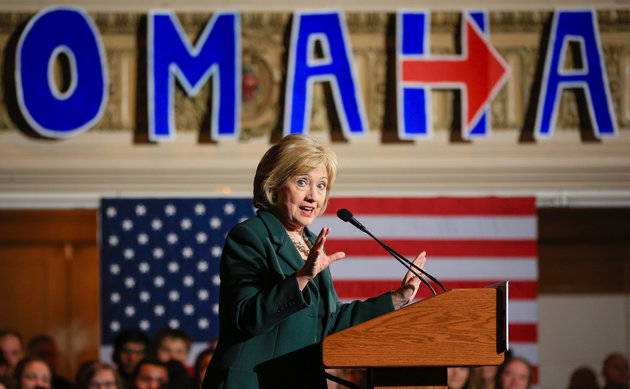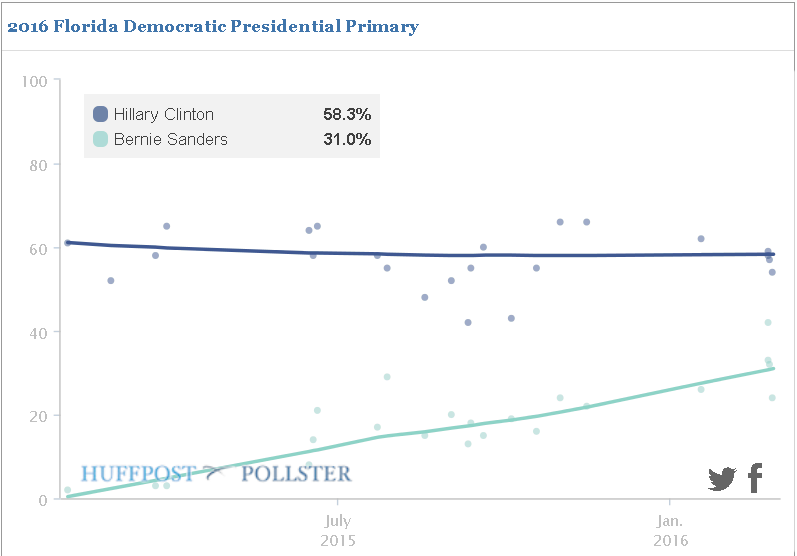
Sen. Bernie Sanders (I-Vt.) could come out a winner in most of the weekend's presidential primary contests -- and that's according to his competitor, who is already trying to manage expectations.
Kansas and Nebraska Democrats hold their caucuses Saturday, while Louisiana will have its primary election that day. Maine Democrats will caucus on Sunday.
Robby Mook, campaign manager for Hillary Clinton, sent out a memo Wednesday that predicted the former secretary of state may lose the caucus states this weekend.
"[A]lthough we continue to fight for every vote, Sen. Sanders has clear advantages and is investing heavily in two upcoming caucuses (Nebraska and Kansas)," Mook wrote.
In Nebraska, for example, Sanders has spent more than double what Clinton has on TV ads in the state's two biggest markets.
Sanders attracted big crowds for his rally in Portland, Maine, this week, telling supporters he could win in the state if there's "large turnout."
"We were up against the candidate supported by the entire political establishment, someone who had been anointed by the pundits," he said of Clinton. "Well guess what? It doesn't look like she's so inevitable now."
The Sanders campaign agrees that it holds the upper hand in the weekend's caucuses. Tad Devine, Sanders' senior campaign strategist, told reporters this week that the calendar post-Super Tuesday doesn't look as good for Clinton. He said they hoped to win Kansas, Nebraska and Maine, as well as Michigan on March 8. Polls currently show Clinton with a significant lead in that state, however.
"We still think we have a winning hand in this game and we're going to continue to play it," Devine added.
But Clinton's team still expects to win the Louisiana primary, a southern state with a more diverse electorate that plays to her strength with communities of color. And at the end of the day, they're arguing that it's less about winning states than about amassing more delegates.
"As she has to date, Sec. Clinton will continue to win diverse states by large margins -- enabling her to add to her pledged delegate lead -- and she will compete in every state with a strategy uniquely tailored to each state so that Sen. Sanders cannot net too many delegates anywhere," Mook wrote.
In the Democratic system, states award their delegates proportionally based on the share of votes the candidates get (provided they get at least 15 percent). So a loss in close race could still pay off, and a big win is better than a small one.
A Democratic candidate needs 2,383 delegates to clinch the nomination. Clinton currently has 1,058 (which includes 457 superdelegates), and Sanders has 431 (including 22 super delegates).
Both Clinton and Sanders are already looking ahead not only to Michigan, but the delegate-rich date of March 15, when Florida, Illinois, Missouri, North Carolina and Ohio will be holding their primaries. Florida holds the largest number of delegates to date, and Clinton currently holds the lead there, according to polls.

- Publish my comments...
- 0 Comments
